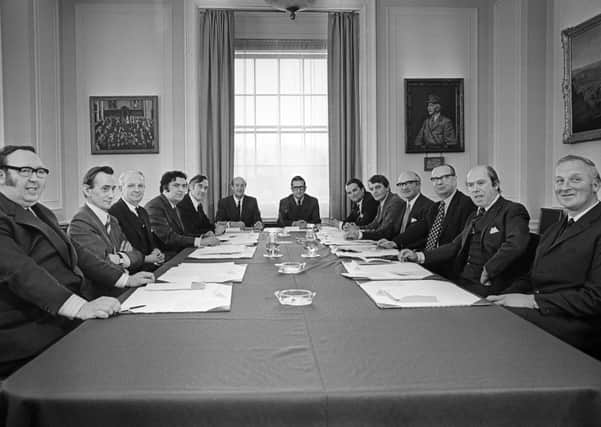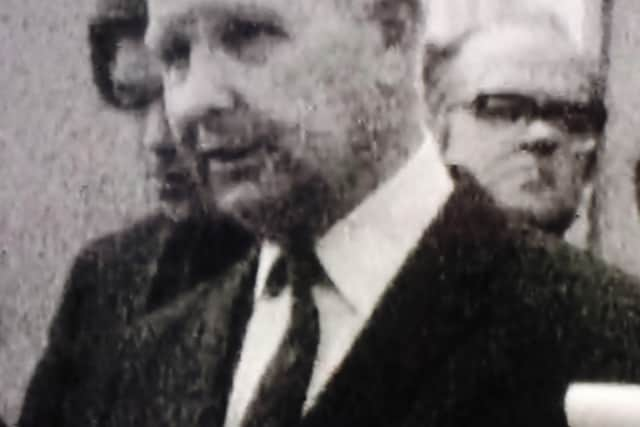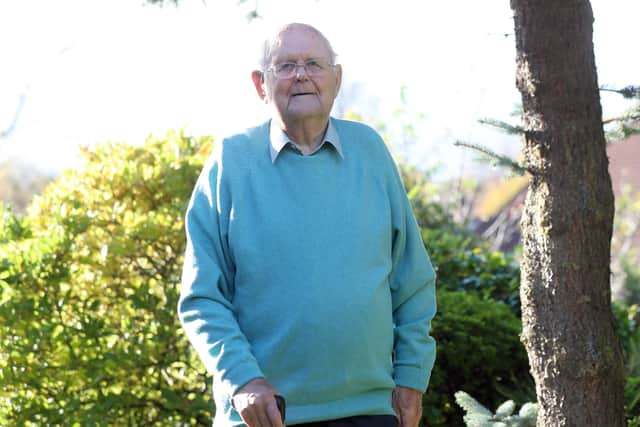Civil servant memoir: ‘As 1974 rolled on, SDLP became keen on activating the Council of Ireland’


(See below for links to earlier sections of this memoir)
There was some gamesmanship in running a private office.
I had been delighted to be offered the post of principal private secretary to Brian Faulkner, the chief minister in the new power-sharing executive of January 1974.


On one occasion, where there was a massive bomb explosion in Royal Avenue in Belfast, Brian Faulkner happened to be in Birmingham on a private visit.
Advertisement
Hide AdAdvertisement
Hide AdWe knew that the secretary of state would feel obliged to visit the scene.
We assumed so would the Lord Mayor and the press.
The first flight from Birmingham came in to Aldergrove quite early so Chris McCabe managed to intercept Mr Faulkner there and got him down to Royal Avenue first.


Being a private secretary is not only a fascinating but a hazardous job.
One has to anticipate his political master’s wishes and likely reactions.
In short, you punch above your weight.
Advertisement
Hide AdAdvertisement
Hide AdSo, you telephoned a more senior civil servant and suggested ...
“I don’t think the chief would be too happy ...”
“Would you think of re-wording ...”
“I think the chief would hardly go as far as ...
Years later, when the private secretary has gone back into the mainstream, someone whom he has offended may catch up with him to his detriment.
One piece of information came to me by way of a petrol station.
Older readers may remember Stewart Johnston’s garage on the Belmont Road.
Advertisement
Hide AdAdvertisement
Hide AdThat was where the official cars normally refuelled, as I also did.
John, the pump attendant chatted to all his customers.
One Monday morning he remarked on a mud-spattered car which would normally have been in immaculate condition.
The driver told him that they had only got back from Dublin at midnight the night before.
John mentioned it to me a short time later and I realised the car had been used by an SDLP minister, which was obviously of interest to Brian Faulkner.
Advertisement
Hide AdAdvertisement
Hide AdWhile we had three private secretaries in the Faulkner (chief minister) Office, Gerry Fitt (deputy chief) had only one, Alex Ireland.
Such was the trust between our two political masters that when Alex went for his lunch break, one of us would move next door to cover for him.
If Alex happened to be having lunch with his boss, it could be a long break!
As 1974 rolled on, the SDLP became more insistent on the activation of the Council of Ireland, that has been agreed in the Sunningdale talks in 1973, and the unionists more apprehensive about its implementation.
Advertisement
Hide AdAdvertisement
Hide AdAt one stage Mr Faulkner urgently needed to speak to Gerry Fitt, the deputy chief minister of the power sharing government, who had taken refuge in the Irish Club in Dublin.
Alex Ireland, Gerry Fitt’s private secretary tried twice to contact him, only to be told by Mary Joyce, the Club receptionist, that Mr Fitt was having a bath.
In desperation Alex, whose office was next to mine, asked if we could try, with a fresh voice.
I tried, same response, same bath.
One of my colleagues tried. Ditto.
As the four calls were spread over two hours, poor Gerry must have been completely waterlogged!
Advertisement
Hide AdAdvertisement
Hide AdAs the year progressed and opposition to the power-sharing executive continued, we came to the Workers’ Council strike in May 1974.
• Sinclair Duncan was in the NI Civil Service from 1949 to 1985. He worked in the ministries of Education, Finance and Agriculture, the Cabinet Office, Office of the Executive, NIO and the Department of Environment. The rest of this memoir will be published daily in the News Letter this week
Advertisement
Hide AdAdvertisement
Hide Ad• Part four: ‘Irish Americans were reminded that they had confiscated lands too, more brutally and successfully’
——— ———
A message from the Editor:
Thank you for reading this story on our website. While I have your attention, I also have an important request to make of you.
With the coronavirus lockdown having a major impact on many of our advertisers — and consequently the revenue we receive — we are more reliant than ever on you taking out a digital subscription.
Advertisement
Hide AdAdvertisement
Hide AdSubscribe to newsletter.co.uk and enjoy unlimited access to the best Northern Ireland and UK news and information online and on our app. With a digital subscription, you can read more than 5 articles, see fewer ads, enjoy faster load times, and get access to exclusive newsletters and content. Visit https://www.newsletter.co.uk/subscriptions now to sign up.
Our journalism costs money and we rely on advertising, print and digital revenues to help to support them. By supporting us, we are able to support you in providing trusted, fact-checked content for this website.
Alistair Bushe
Editor